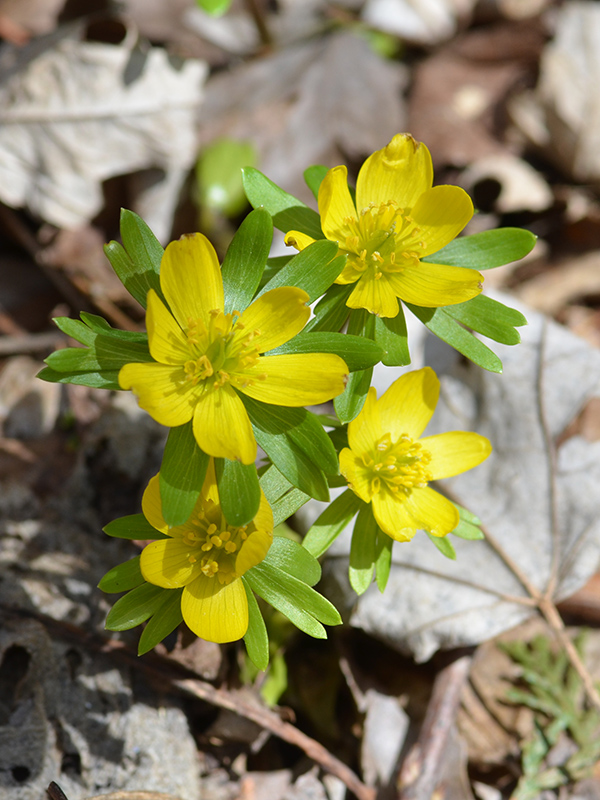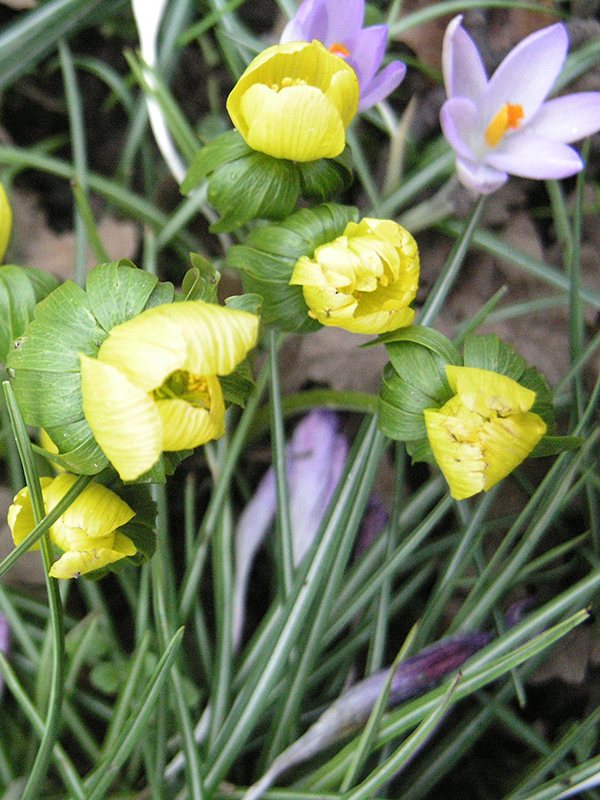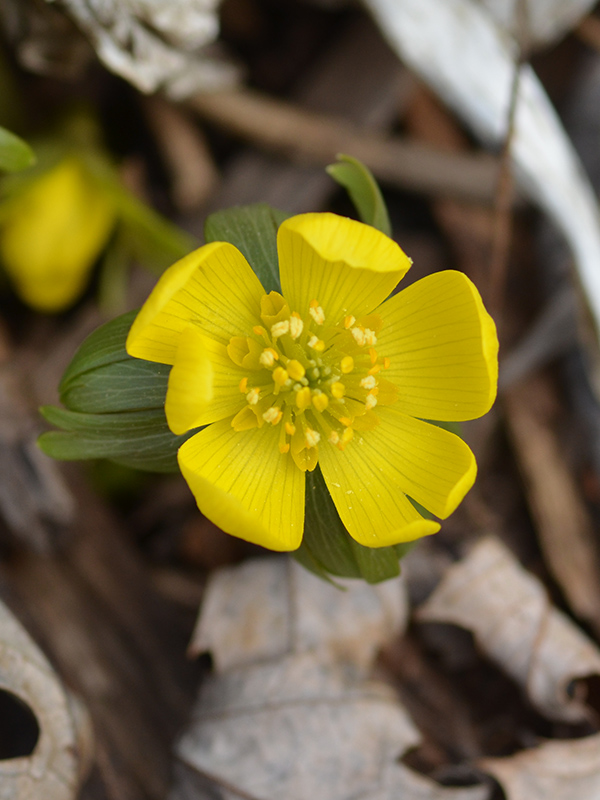
Bulbs, Perennials > Eranthis > Eranthis hyemalis > Eranthis hyemalis
Eranthis hyemalis
Winter Aconite, Wolf's Bane
Origin: Southern Europe and Turkey.
Mike's
Opinion


"
A spring gem that sees rare use in North American gardens principally because it is difficult to establish from dried tubers; the common source. That said I have seen some fantastic groupings of the plant in Ontario, where it has thrived in ideal situations: I treasure the little group in my garden as the harbinger of spring.
Michael Pascoe, NDP., ODH., CLT., MSc. (Plant Conservation)
"
| Family |
| Ranunculaceae |
| Genus |
| Eranthis |
| Species |
| hyemalis |
| Category |
| Bulbs, Perennials |
| USDA Hardiness Zone |
| 6a - 6b |
| Canadian Hardiness Zone |
| 6b |
| RHS Hardiness Zone |
| H6 (observed growing well in H7) |
| Temperature (°C) |
| -20 to -15 |
| Temperature (°F) |
| 4 -5 |
| Height |
| 10 cm |
| Spread |
| 10 cm |
Photographs
Description and Growing Information
Flowering Period
| Landscape |
| One of the earliest spring bulbs and ideally planted in low growing ground covers such as Lamium, Galium odoratum and some of the dwarf Epimediums. |
| Cultivation |
| The plants do not tolerate competition and thus should not be planed amongst aggressive, enveloping groundcover type plants. An open disposition is required in full sun for their brief growing season where the soil is fast draining. Combine with other minor bulb-like plants like Cyclamen coum, Crocus and Galanthus. Green clumps can be moved successfully if given adequate water after the transplant. |
| Growth |
| Medium |
| Leaf Description |
| A pale green, deeply lobed bract. |
| Flower Description |
| Large, yellow, cup-shaped flowers composed of six sepals and six petals, with the anthers surrounding a group of carpels that later become the seed capsule. |
| Fruit Description |
| The anthers surround a group of carpels that later become the seed capsule. |
| Colour Description |
| Pale green foliage and a clear yellow flower. |
| Texture Description |
| A finely textured plant. |
| Propagation |
| From seed a plant will take about four years to flower, in the first year the plant produces a pair of cotyledons, while in the second year of growth a true leaf is produced. Seeds require stratification of about 3 months at 5°C but are best sown in the pots in a cold frame and allowed to stratify over the winter naturally and will germinate the following spring. The seeding mix must be a gritty loam topped with grit to prevent moss and liverwort growth. The plant can also be grown from tubers with mixed results. Best results are achieved if the tubers are fresh or rehydrated in water overnight prior to planting in the autumn. |



